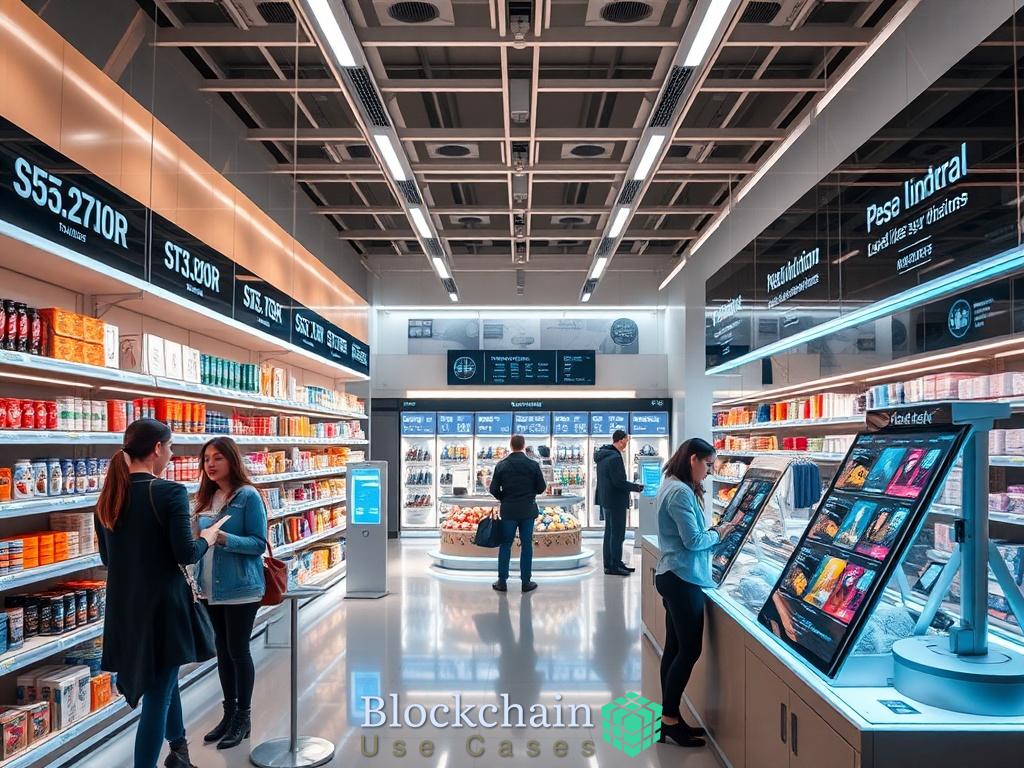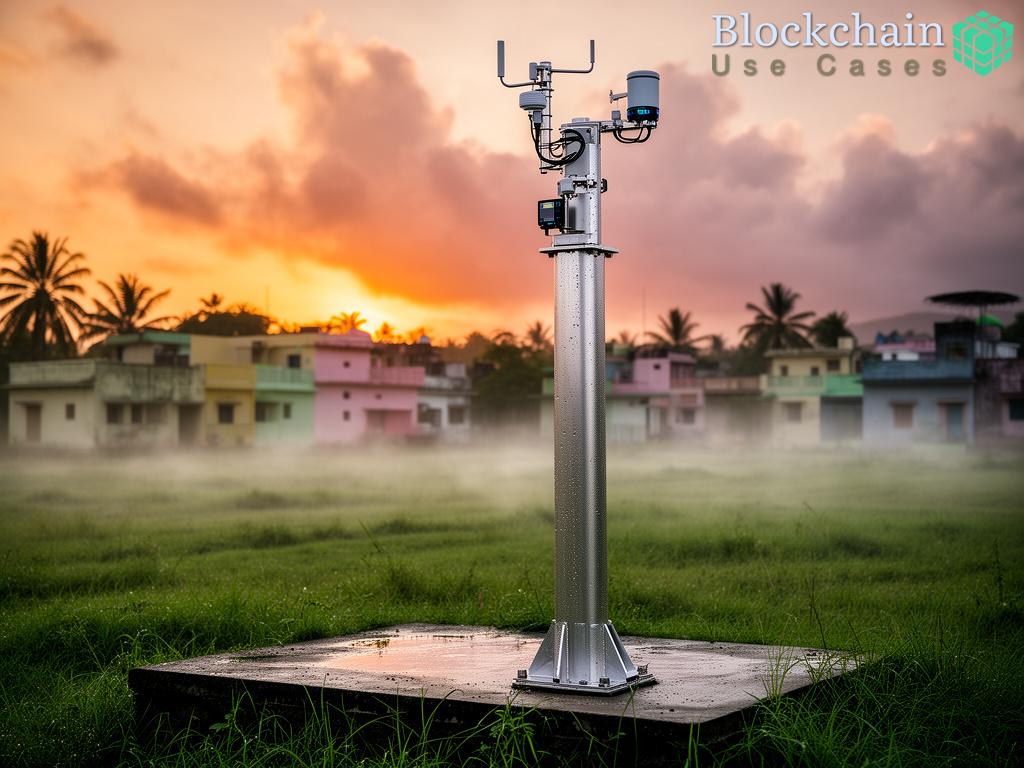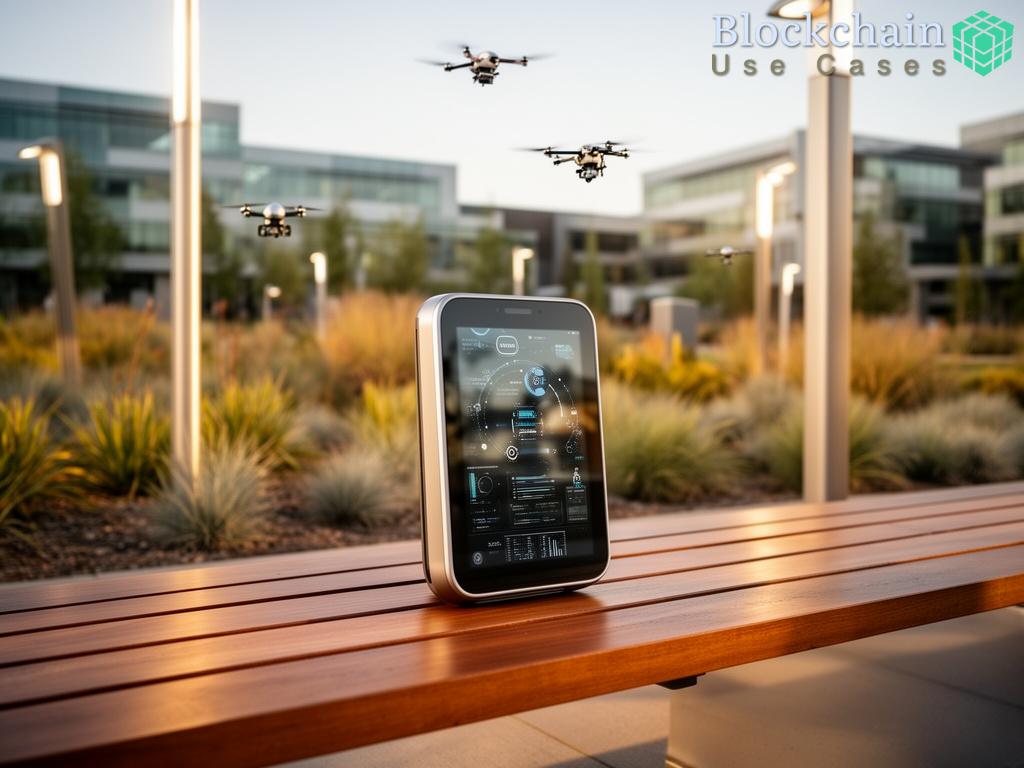Blockchain Integration for IoT in Retail

In an era where technology is shaping every facet of business, the integration of blockchain technology with Internet of Things (IoT) devices is revolutionizing retail management. Retailers are increasingly adopting decentralized systems to enhance operational efficiency, enhance customer experience, and maintain a competitive edge. This convergence promises not just innovation but also a substantial transformation in how inventory is managed and transactions are conducted.
Inventory management is a critical aspect of retail, and blockchain technology introduces unparalleled transparency and traceability. By utilizing IoT sensors that are linked to a blockchain network, retailers can maintain real-time visibility of their inventory. Each product can be tracked from the point of manufacture to the shelf, ensuring authenticity and reducing the risks of fraud. This level of control allows retailers to optimize stock levels and minimize waste, ultimately leading to increased profitability.
The fusion of blockchain and IoT in retail is not just about tracking inventory; it encompasses a broader range of benefits that enhance operational efficacy. Here is a summarized list of the key advantages:
- Enhanced Security: Blockchain’s decentralized nature provides robust security against data breaches.
- Streamlined Transactions: Smart contracts can automate and expedite payment processes, reducing transaction costs.
- Improved Customer Trust: Transparent supply chains foster consumer confidence in product authenticity.
- Data Integrity: Immutable records ensure that the data collected from IoT devices is reliable and accurate.
- Real-Time Analytics: Continuous data flow allows for informed decision-making and agile responses to market changes.
As retailers continue to explore the potential of blockchain and IoT, the future promises a more interconnected and efficient retail ecosystem.
Smart Contracts for Automated Inventory Management
The integration of smart contracts into decentralized systems is a game-changer for inventory management in smart retail environments. By automating various processes through coded contracts, retailers can significantly enhance their operational efficiency. Smart contracts facilitate transactions that execute automatically when predefined conditions are met, thus reducing the need for manual intervention and minimizing human error.
Smart contracts not only expedite transactions but also ensure that inventory levels are consistently monitored and managed. When combined with IoT devices, these contracts can automatically reorder stock when levels fall below a certain threshold, allowing retailers to maintain optimal inventory without the burden of constant oversight. This level of automation leads to a more agile supply chain, enabling businesses to respond to market demands swiftly.
Incorporating smart contracts into inventory management provides several distinct benefits that can enhance overall business performance. Below is a concise overview of these advantages:
- Cost Reduction: Automating transactions reduces labor costs associated with manual processes.
- Accuracy and Reliability: Smart contracts minimize human error, ensuring that inventory data is precise and trustworthy.
- Dynamic Adjustments: Inventory levels can be adjusted in real-time based on demand forecasts, reducing overstock and stockouts.
- Enhanced Accountability: Each transaction is recorded on the blockchain, providing a transparent audit trail that fosters accountability.
- Real-Time Monitoring: Continuous tracking of inventory levels through IoT devices allows for immediate responses to fluctuations.
As retailers continue to navigate the complexities of modern supply chains, the adoption of smart contracts for automated inventory management stands out as a pivotal strategy. The future of retail lies in leveraging these technologies to create efficient, transparent, and responsive systems that cater to the dynamic needs of consumers.
Decentralized Data Security in Smart Retail
In the rapidly evolving landscape of smart retail, where Internet of Things (IoT) devices play a pivotal role in inventory management, ensuring data security is paramount. The traditional centralized systems often expose retailers to various vulnerabilities, including data breaches and unauthorized access. However, the advent of decentralized systems mitigates these risks by leveraging blockchain technology to create a secure environment for managing sensitive information. This transition not only enhances data protection but also builds consumer trust, an essential element in today’s competitive retail market.
A Robust Framework for Data Security
Decentralized data security operates on a framework that emphasizes transparency and immutability. Unlike centralized systems where data is stored in a single location, decentralized systems distribute data across a network of nodes. This distribution makes it exceedingly difficult for malicious actors to compromise the integrity of the data. Each transaction or data entry is recorded on a blockchain, creating an immutable ledger that can be verified by all parties involved. The result is a security model that is inherently resilient against tampering and unauthorized alterations, fostering a safe environment for both retailers and consumers.
Empowering Retailers with Control and Compliance
One of the standout benefits of decentralized data security is the enhanced control it affords retailers over their data. Retailers can set specific permissions for access, ensuring that only authorized personnel can view or modify sensitive information. This level of control is critical for compliance with regulations such as GDPR and CCPA, which mandate stringent data protection measures. By utilizing smart contracts within the blockchain framework, retailers can automate compliance processes, ensuring that their operations meet regulatory standards without the burden of manual oversight. This capability not only protects against potential fines but also reinforces the retailer’s commitment to safeguarding customer data.
Building Consumer Confidence through Transparency
In an age where consumers are increasingly concerned about data privacy, decentralized systems offer a solution that enhances transparency. With the ability to track every transaction on a blockchain, consumers can verify the authenticity and security of their purchases. Retailers can provide real-time insights into the supply chain, from the sourcing of materials to the final sale of products. This transparency not only instills confidence in consumers but also drives loyalty, as customers are more likely to engage with brands that prioritize their security and privacy.
| Aspect | Centralized Systems | Decentralized Systems |
|---|---|---|
| Data Control | Limited to central authority | Distributed control among nodes |
| Security | Vulnerable to single point failures | Resilient against tampering |
| Compliance | Manual processes often required | Automated compliance with smart contracts |
| Consumer Trust | Lower due to data breaches | Higher due to transparency |
The evolution towards decentralized data security in smart retail signifies a monumental shift in how retailers manage not only their inventory but also their relationships with consumers. By adopting these innovative systems, retailers can protect their operations while enhancing customer engagement, ultimately leading to a more sustainable and prosperous retail environment.
Real-Time Analytics in IoT-Driven Retail Systems
In the competitive landscape of retail, the ability to access and analyze data in real time has become indispensable. As retailers increasingly deploy IoT devices within decentralized systems, they gain unparalleled insights that drive operational efficiency and customer satisfaction. Real-time analytics empowers businesses to make data-driven decisions, ensuring that they remain responsive to market dynamics and consumer behavior.
The implementation of real-time analytics in IoT-driven retail systems transforms raw data into actionable insights. By continuously monitoring inventory levels, consumer interactions, and supply chain logistics, retailers can swiftly identify trends and anomalies. This proactive approach enables businesses to adapt their strategies, whether by adjusting pricing, optimizing stock levels, or enhancing customer engagement.
For instance, retailers can analyze purchase patterns to anticipate demand fluctuations, allowing them to align their inventory with consumer preferences. This adaptability not only reduces the risk of overstock and stockouts but also fosters a personalized shopping experience that resonates with customers.
Here is a concise overview of how real-time analytics can elevate retail operations:
- Informed Decision-Making: Access to live data helps retailers make timely decisions that reflect current market conditions.
- Optimized Inventory Management: Real-time tracking of stock levels ensures optimal inventory without excess or shortage.
- Enhanced Customer Experience: Immediate insights enable personalized marketing and tailored promotions that cater to consumer needs.
- Proactive Issue Resolution: Analytics can flag potential supply chain disruptions, allowing retailers to mitigate risks before they escalate.
- Performance Measurement: Continuous data flow allows for real-time assessment of marketing campaigns and sales strategies, leading to ongoing improvement.
Real-time analytics in IoT-driven retail systems not only enhances operational efficiency but also creates a more responsive and consumer-centric retail environment. As decentralized systems evolve, the integration of advanced analytics will undoubtedly play a pivotal role in shaping the future of retail.
Interoperability Challenges in Decentralized IoT Solutions
As the retail landscape continues to evolve with the adoption of decentralized systems and IoT technologies, one of the most pressing challenges that emerges is interoperability. The ability of various devices and systems to communicate and work together seamlessly is crucial for maximizing the potential of smart retail environments. However, achieving true interoperability in decentralized IoT solutions is fraught with complexities that can inhibit efficiency and innovation.
One of the primary barriers to interoperability is the diversity of devices and protocols utilized in IoT systems. Retailers often deploy a myriad of IoT devices from different manufacturers, each operating on unique communication protocols and standards. This fragmentation creates silos of data and functionality, making it difficult for systems to integrate. Moreover, the lack of a unified framework for data exchange means that even when devices are capable of communication, they may not understand each other’s data formats or commands. Hence, the effectiveness of decentralized systems can be diminished, as they struggle to harness the full range of capabilities offered by IoT technologies.
To address these interoperability challenges, the retail industry must pivot towards standardization of communication protocols and data formats. Establishing common standards would not only simplify the integration of diverse devices but also foster collaboration among retailers and technology providers. By adopting universally accepted frameworks, retailers can create a more cohesive ecosystem where IoT devices work in harmony, enhancing operational efficiency and data fluidity.
Another pivotal aspect of bridging interoperability gaps lies in the implementation of middleware solutions. Middleware acts as an intermediary layer that facilitates communication between disparate IoT devices, allowing for seamless data exchange and process integration. By utilizing middleware, retailers can ensure that their decentralized systems are capable of supporting various devices, regardless of their underlying technology. This approach not only enhances interoperability but also provides a scalable infrastructure that can adapt as new technologies emerge, future-proofing retail operations.
While striving for interoperability, it is essential for retailers to consider the security implications that arise from interconnected devices. Each additional point of interaction increases the potential attack surface for cyber threats. Decentralized systems, by their nature, require robust security measures to protect sensitive data and maintain consumer trust. Therefore, any efforts to enhance interoperability must also incorporate stringent security protocols to mitigate risks associated with data breaches and unauthorized access.
Moreover, leveraging decentralized identity management solutions can enhance security while ensuring interoperability. By utilizing blockchain-based identity systems, retailers can guarantee that only authorized devices gain access to the network, thus safeguarding the integrity of their data. This dual approach to enhancing interoperability while maintaining security will be crucial as retailers navigate the complexities of IoT-driven environments.
In summary, the quest for interoperability in decentralized IoT solutions presents both challenges and opportunities for the retail sector. By prioritizing standardization, implementing middleware, and focusing on security, retailers can unlock the full potential of their IoT investments, paving the way for a more interconnected and efficient retail ecosystem. As the industry progresses, overcoming these interoperability challenges will be paramount in realizing the vision of smart retail.





